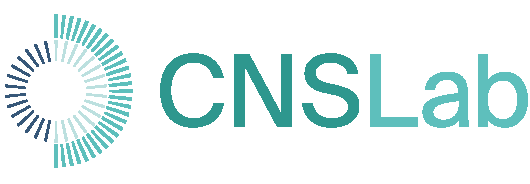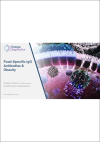Nourishing The Body and Mind to Combat Stress

Balancing Stress and Cortisol with Complex Carbohydrates
Eating a nutritious diet has a direct impact on reducing the stress hormone cortisol, as chronic stress raises the body’s metabolic needs and increases the use and excretion of many nutrients resulting in deficiencies.
All carbohydrates prompt the brain to produce serotonin, so for a steady supply of this feel-good chemical, it's best to eat complex carbohydrates, which take longer to digest. Good choices include unrefined, whole-grain breads, oats, pulses, lentils and beans. Complex carbohydrates can also help you feel balanced by stabilizing blood sugar levels. Consume with protein and, ideally, a source of quality fat such as olive oil, avocadoes, oily fish, fresh nuts and seeds. Choose whole, natural foods and ensure you eat a minimum of five portions of non-starchy vegetables per day. Actively address imbalanced cortisol with diet.
Fasting and Stress
Stress creates a chain reaction of behaviours that can negatively affect eating habits, leading to future health problems. People feeling stress may lack the time or motivation to prepare nutritious, balanced meals, or may skip or forget to eat meals.
Ignore Dr Google and the influencers selling products and focus on non-faddy food choices and three nutritious meals per day to set the vital precedence of good eating habits. Prolonged fasting has been a recent trend, but it may be a source of stress and cortisol imbalance if blood sugar control is poor. The body has very tight blood sugar/glucose parameters and when levels drop, cortisol is stimulated to draw on reserves from the liver and muscles. A 13 hour fast is sufficient for health benefits and 16 hours may have increased benefits if blood sugar control is good but supervision should be sought and it is not recommended for the following conditions: underweight, eating disorders, type 1 diabetes, medication controlled type 2 diabetes, pregnancy or breastfeeding, recent surgery, mental health conditions, fever or illness, conditions for which warfarin is taken.
Stress and Sleep
Stress can disrupt sleep by causing lighter sleep or more frequent awakenings, leading to fatigue during the day. To counteract daytime fatigue, people may use stimulants to increase energy such as caffeine or high-calorie snacks that instantly elevate blood glucose. The reverse may also be true that poor-quality sleep is itself a stressor. Studies have found that sleep restriction causes a significant increase in cortisol levels. Focus on quality sleep by setting regular sleep/wake cycles, create a peaceful environment with no light or noise to assist deep sleep, avoid cortisol disruptors, such as caffeine after lunch, eat a protein snack before bed and use adaptogenic herbal supplements, such as ashwagandha or l-theanine to promote cortisol balance.
Stress, Gut Bacteria and Digestion
For those in a frequent in a state of worry, anxiety or stress, digestion will suffer. Psychological stress and depression can promote the consumption of sugar-rich foods, caffeine and alcohol directly influencing the species of bacteria that thrive in the gut. Sugars increase levels of Proteobacteria in the gut, while simultaneously decreasing the abundance of beneficial Bacteroidetes, which helpfully reinforce gut barrier function. Additionally, stress and stress hormones, such as cortisol, and depression directly reshape the gut bacteria’s composition through inflammation, and alterations in food transit time through the gut.
Our relationship with our unique gut bacteria is bi-directional; we feed them, and they release metabolites, toxins, and neurohormones that can directly alter our eating behaviour and mood. Some bacterial species have been shown to encourage dysregulated eating whilst others may upregulate stress responsiveness and heighten the risk for depression. Probiotic supplementation to help balance the gut microbiome when counteracting negative stress responses should be considered as a strategy, alongside a nutritious diet.
Over-exercise and Stress
Fatigue, under performance, gastrointestinal distress, food sensitivities and mood disturbances are notably common amongst athletes, particularly at the elite level. During intense exercise, psychosocial and physical demands activate the hypothalamus-pituitary-adrenal (HPA) axis causing the release of stress hormones. These include catabolic hormones such as cortisol, inflammatory cytokines and microbial molecules, which may have an influence on overall health, notably gut health.
Stress induced cortisol excretion and dysfunction can result in bone and muscle breakdown as well as fatigue, hindering post-exercise recovery. Athletes may become more susceptible to injury and illness, potentially jeopardising their fitness and performance gains. It is therefore important to assess the balance of the adrenal gland hormones cortisol and DHEA, so that an individual’s training program can be adapted, and treatments and strategies put in place, ensuring that they are supported before reaching the fatigued state. Testing will highlight whether an athlete is adapting successfully to their exercise demands or whether training modification is needed alongside addressing any other underlying stressors, such as lifestyle habits, infections, and nutritional issues. The same principles apply to amateur athletes prone to over training.
Caffeine and Stress
One effective way of modifying and balancing the stress hormone cortisol is to cut down on caffeine intake, such as tea, coffee, energy drinks, and chocolate.
Caffeine elevates cortisol by stimulating the cardiovascular and nervous systems with pronounced effects, including raising blood pressure for several hours after intake. It affects mood, memory, alertness, and physical and cognitive performance. Caffeine has a mean half-life, meaning it breaks down slowly, of around 5 hours, ranging from between 1.5 to 9.5 hours depending on individual genetics and lifestyles (1). A 3pm cup of coffee may directly affect sleep in those with a long half-life whilst others may be able to drink a coffee at 9pm and be sleep soundly by11pm.
Caffeine also has the effect of chemically blunting a sleep regulator substance in the brain called adenosine. As the caffeine effects wear off, that adenosine pressure is unblunted and we feel the ‘crash’; that 3am feeling on a night out when you literally cannot keep your eyes open. That inability to stay awake is not your circadian rhythm and your melatonin and cortisol levels. It’s your adenosine pressure, something that cannot be ignored. Without caffeine, adenosine builds up gradually during the day and peaks at nighttime (2).
Halve caffeine intake initially and aim to drink your last caffeinated beverage at lunchtime. Remember it’s in chocolate too, so reach for the fruit (instead of chocolate pudding!) for dessert.
The Role of Vitamin C and Stress
In humans the stress response is characterised by activation of the HPA axis and sympathoadrenal system (SAS) as well as the increased synthesis and secretion of vitamin C. Cortisol, catecholamines, and vitamin C act synergistically to maintain immune function and protect against excessive oxidant injury. Vitamin C is the most studied, the original and most important nutrient to supplement when stressed. Humans over the ages have lost the ability to synthesise vitamin C and therefore have an impaired stress response so the inability to produce vitamin C has serious implications particularly in those with acute disease, the most significant cause of physiological stress (1). Remember its high dose therapeutic use in alleviating the inflammatory response in Covid-19 patients? (2,3).
High dose treatment with vitamin C may be a first line treatment option for those who are stressed.








